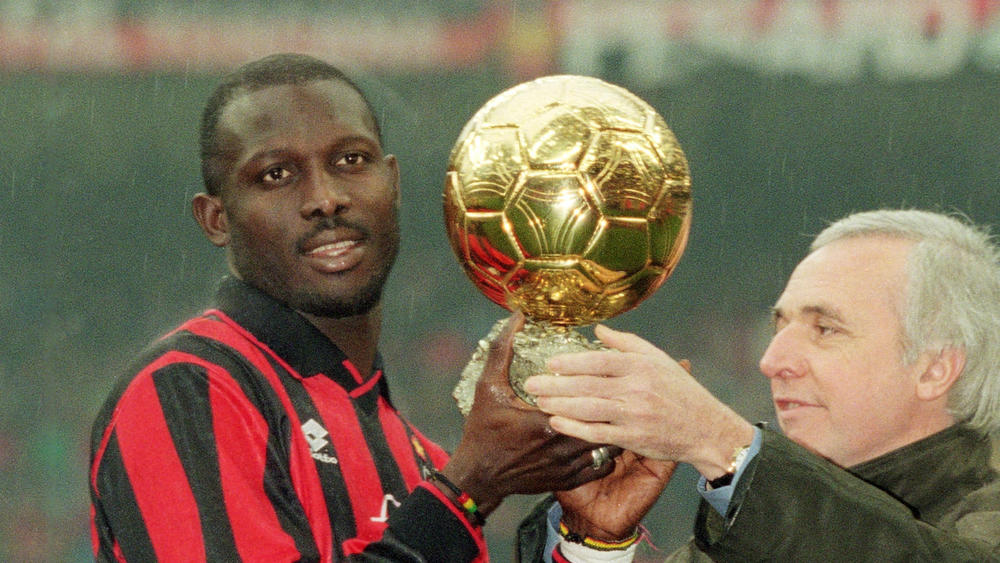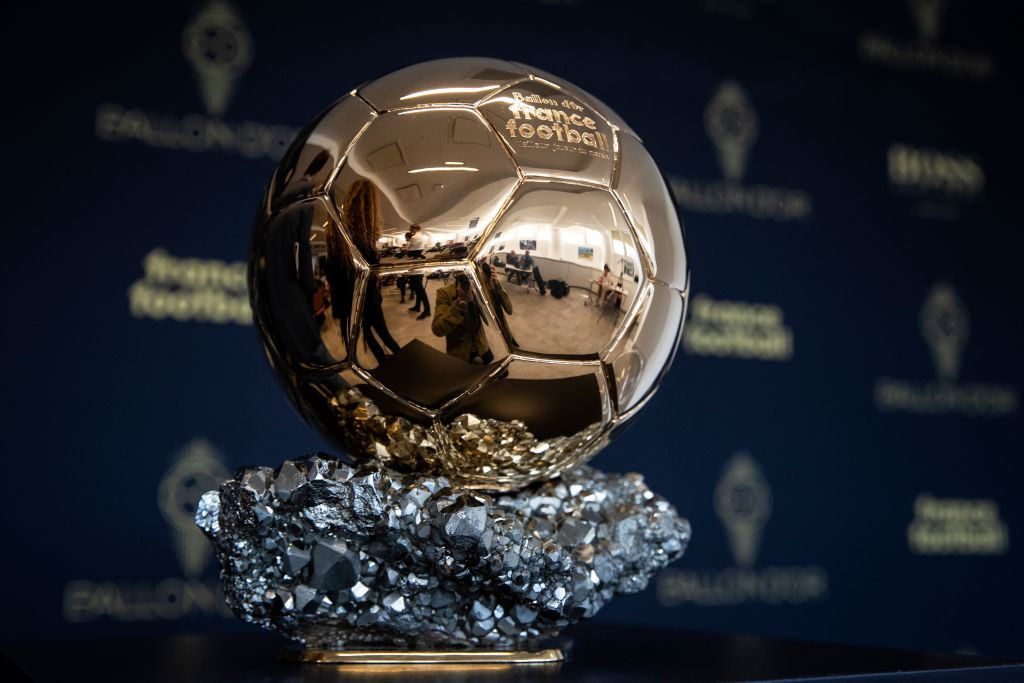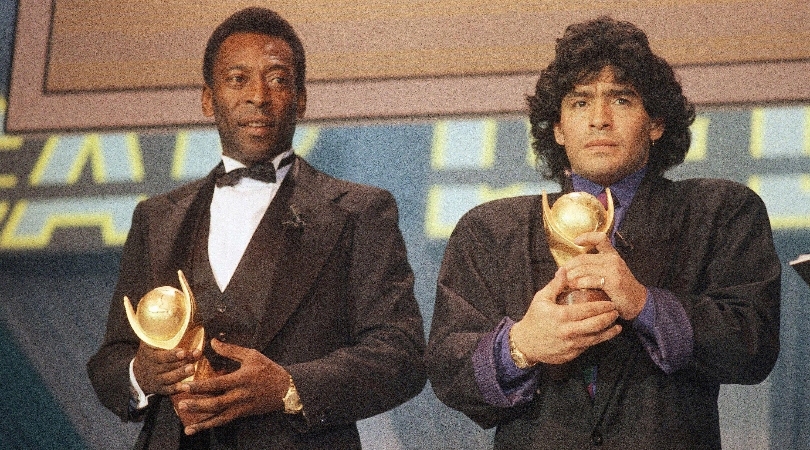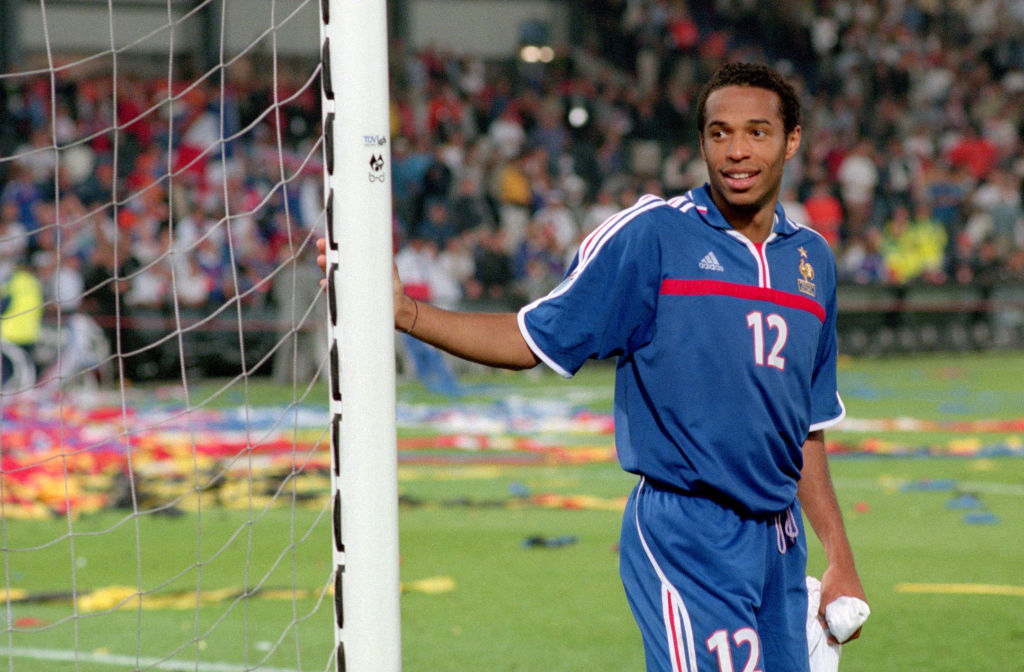
Take a look down the list of Ballon d’Or winners since its 1956 inception, and one player – or rather, one flag – stands out a mile.
Argentina, France, Germany, the Netherlands, Portugal, Brazil, England, Spain and the Soviet Union have dominated the awards. When the Ballon d'Or has not gone to players from those countries, it has been almost exclusively scooped by a standout player from a European nation: Bulgaria, Croatia, Czechoslovakia and the Czech Republic, Denmark, Hungary, Northern Ireland, Scotland and Ukraine have all been represented.
That leaves just one male winner in the history of the Ballon d'Or whose international allegiance was to a country outside Europe or South America: 1995 winner and proud Liberian George Weah.
The Ballon d'Or never recognised non-European talent before George Weah

There’s a very straightforward reason for that being the case. Weah’s win came in the very first year France Football extended the criteria to allow players born outside Europe to be eligible to win the award – with an asterisk next to 1965 winner Eusebio, born in Mozambique when it was still formally a Portuguese colony, and who played his international football for Portugal.
That meant that Pele never won the award: in 1958, 1962 and 1970, when he inspired Brazil to the World Cup, the Ballon d’Or went to Raymond Kopa, Josef Masopust, and Gerd Muller, respectively. Nor did Diego Maradona: the 1986 Ballon d’Or was won by Igor Belanov.

The side-effect of that was that black players and players of African descent were historically hugely underrepresented in the Ballon d’Or honours list. Prior to Weah’s win, Eusebio and Ruud Gullit (1988) were the only two black players to raise the Ballon d’Or. Since then, Weah has been joined on the list of winners by Ronaldo, Zinedine Zidane, Rivaldo, Ronaldinho, and Karim Benzema.
Perhaps it was Weah’s outstanding performances so close to home that led France Football to revise their criteria. On the face of it, Weah’s goalscoring record in 1994/95 was unremarkable: 18 in 53 in all competitions.
But it was the kinds of goals that Weah scored that could the attention, alongside his stellar record in the Champions League. PSG were then far from the powerhouse they are now, but won every game in the group stage – including doing the double over Bayern Munich – and saw off Johan Cruyff’s Barcelona in the quarter-finals before falling to reigning champions AC Milan in the semi-finals.
Weah was crucial to that run, scoring in all but one of the group games – three of them winners, including a fabulous solo effort away to Bayern – and grabbing the equaliser in the first leg away to Barcelona that gave PSG genuine (and justified) hope of winning the tie back in Paris.
No lesser an authority than Thierry Henry later cited Weah as being hugely influential on the way he saw the game, telling the Blizzard in 2014: “[Ronaldo], together with Romario and George Weah, reinvented the centre-forward position.
“They were the first to drop from the box to pick up the ball in midfield, switch to the flanks, attract and disorientate the central defenders with their runs, their accelerations, their dribbling. Who’d done that before? Gerd Müller? Paolo Rossi? No.
“George Weah was a big influence on me. I copied his game, maybe. But how many guys can claim they have reinvented a position? Not many.”
Henry attaches no blame to Weah for this personally, but his 1995 Ballon d’Or win – and those that subsequently went to Romario and Ronaldo – also prefigured a phenomenon that has gathered steam more and more over the past 30 years, particularly when it comes to how we talk about the Ballon d’Or itself.

“One of the consequences has been that there came a time when media and marketing people started to individualise football performance,” Henry continued.
“People stopped highlighting the collective dimension of the game, how a goal was constructed, how a phase started. Everything has been geared towards the individual. We are not talking about football anymore.”
Weah’s Ballon d’Or win was a landmark in the history not just of the individual award, but in the culture of football itself – for considerable better and for tedious worse.







